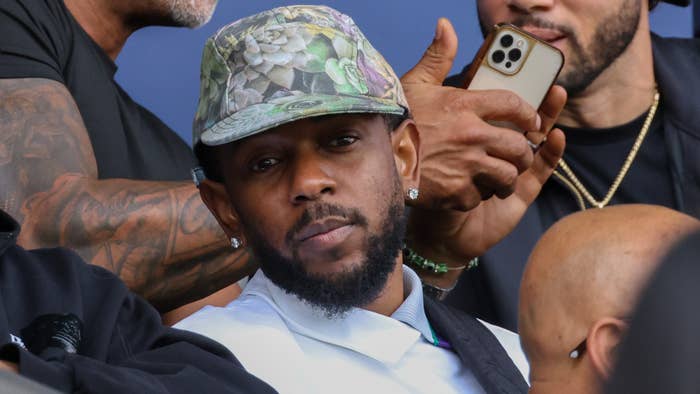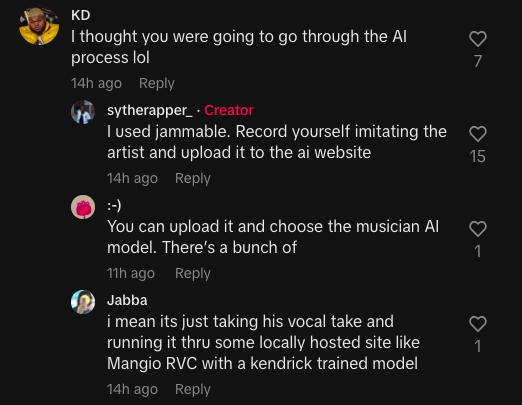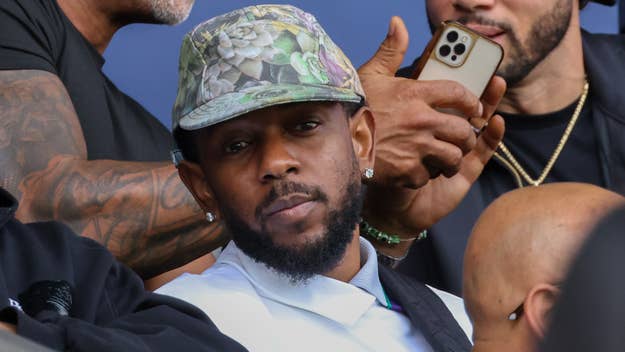
The person who alleges they are behind the fake Kendrick Lamar diss has come forward.
In a TikTok shared Tuesday, @sytherapper_ took responsibility for the audio in question, which quite annoyingly only added confusion to the ongoing Drake vs. The World battle.
"I ain’t gon’ lie. I shocked myself," Sy said in the video, as seen below. "I thought it was gon' sound fake. I thought people was gon' be able to tell it was fake. People think it’s actually real, so I just wanna come out for the record and say that it’s A.I. That’s not Kendrick's response. I know Kendrick gon' come harder than that. I just couldn’t get too disrespectful, 'cause I ain’t in the beef. Ain’t nobody dissed me."
The video sees Sy noting that he made a beat for the fake song that he thought would convey "chaos and the world is ending." As for the vocal performance, he pointed out that he had to "emphasize his T's" while trying to recreate Kendrick’s signature delivery. While the actual A.I. components of this alleged process are not shown in the video, Sy later said in a comment that he used Jammable, which allows users to "record yourself imitating the artist and upload it to the A.I. website."

Plenty will say such routinely-in-headlines A.I. tactics are all in good fun and shouldn't be taken too seriously. Maybe so. Still, it’s hard to push down the overwhelmingly dreadful sinking feeling one gets while simply trying to follow a rap beef, for example, but instead being forced to constantly ask, 'Wait, is this really the artist it’s purporting to be or am I being duped?" There’s arguably zero value in perpetuating such confusion, and one could very easily argue that its prevalence is part of a larger, more existential frustration we’re all feeling in some fashion but which few of us bother to acknowledge.
Imagine, if you will, a possible musical landscape in the future wherein every single time one of your favorite artists is reported to have a new song out, you are then tasked with figuring out whether it’s fucking real or not. Adding to that is the consistently misleading definition of "A.I." that's taken hold on social media and elsewhere, with likely far more people than you might expect genuinely believing (and given how it's discussed, understandably so in select instances) that these fake A.I. tracks are brought into existence without any human involvement whatsoever.
To that end, I direct you to several good points recently made by Rolling Stone's Brian Hiatt in the following Twitter thread (paired nicely with this RS joint from Andre Gee):
You know what is real? Kendrick's verse on "Like That," which was still the No. 1 song in the country as of this writing.

